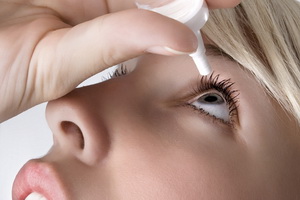
What is it?
Allergic conjunctivitis is an allergic inflammation of the eye mucosa. Allergic conjunctivitis affects approximately 15% of the total population. Allergic conjunctivitis can occur as a manifestation of hay fever, as a drug allergy, as an allergy to animals, as a reaction to contact lenses, etc.
Why does it happen?
The cause of allergic conjunctivitis are various allergens - bacteria, viruses, medicines, cosmetics, household chemicals, physical and chemical factors in chemical, textile, flour milling, light energy and ionizing irradiation, etc. When the allergen hits the eye mucosa People sensitive to the allergen, there is an allergic reaction. Allergic conjunctivitis is often combined with such allergic diseases as bronchial asthma, allergic rhinitis, atopic dermatitis.
What's happening?
Allergic conjunctivitis is also called "red eye disease" because of characteristic symptoms: itching or burning sensation in the eyes, tears flowing, eyelids turn red and swollen, and photophobia develops. Often the disease is accompanied by a runny nose and cough. With allergic conjunctivitis, both eyes are usually affected. Very often allergic conjunctivitis takes a long time with insignificant manifestations and cannot be treated.
Diagnosis
The diagnosis is established by an ophthalmologist or an allergist when examining and interviewing the patient. Most often, in addition to conjunctivitis, the patient also has other manifestations of allergy. To clarify a specific allergen requires a thorough examination, including the setting of skin tests.
Treatment
Allergic conjunctivitis is treated under the supervision of a doctor. With proper treatment, the complete disappearance of all symptoms is possible. Treatment is carried out for 10-14 days. For treatment it is very important to find out the allergen that causes the disease, and completely eliminate the possibility of contact with it. However, this is not always possible. In such cases, the doctor will prescribe medication. With small symptoms of allergy, it may be sufficient to use cold compresses and "artificial tears" to reduce discomfort. In more severe cases, the doctor may prescribe anti-inflammatory and antiallergic drugs in drops and tablets.
Prevention
To prevent the onset of allergic conjunctivitis, it is necessary to minimize the possibility of contact with allergenic substances: house dust, cockroaches, domestic animals, dry food for fish, household chemicals, cosmetics, etc. If contact is unavoidable, special anti-allergic drugs prescribed by the doctor must be pre-drilled into the eyes in advance.


